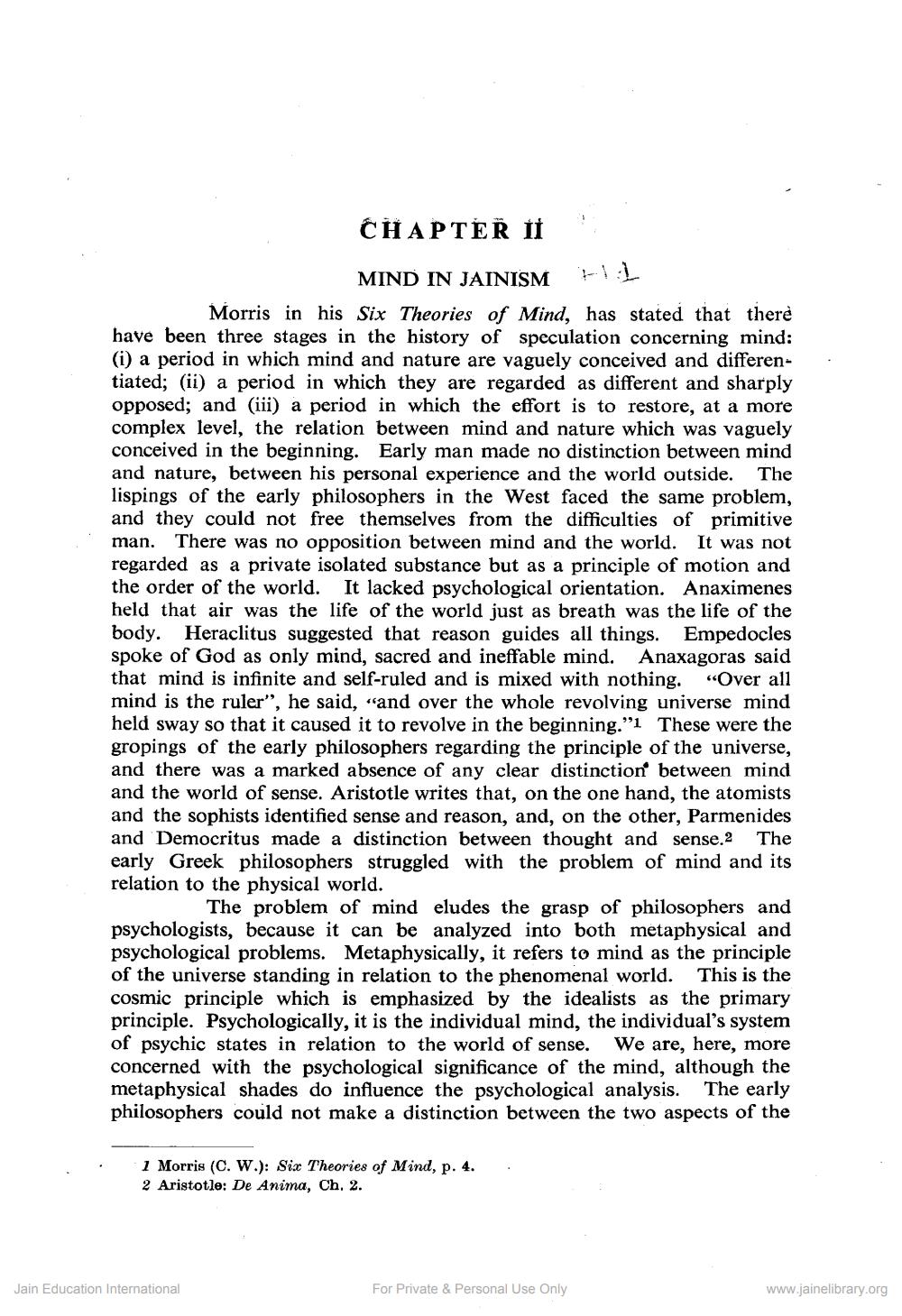________________
CHAPTER II
MIND IN JAINISM
HL
Morris in his Six Theories of Mind, has stated that there have been three stages in the history of speculation concerning mind: (i) a period in which mind and nature are vaguely conceived and differentiated; (ii) a period in which they are regarded as different and sharply opposed; and (iii) a period in which the effort is to restore, at a more complex level, the relation between mind and nature which was vaguely conceived in the beginning. Early man made no distinction between mind and nature, between his personal experience and the world outside. The lispings of the early philosophers in the West faced the same problem, and they could not free themselves from the difficulties of primitive man. There was no opposition between mind and the world. It was not regarded as a private isolated substance but as a principle of motion and the order of the world. It lacked psychological orientation. Anaximenes held that air was the life of the world just as breath was the life of the body. Heraclitus suggested that reason guides all things. Empedocles spoke of God as only mind, sacred and ineffable mind. Anaxagoras said that mind is infinite and self-ruled and is mixed with nothing. "Over all mind is the ruler", he said, "and over the whole revolving universe mind held sway so that it caused it to revolve in the beginning."1 These were the gropings of the early philosophers regarding the principle of the universe, and there was a marked absence of any clear distinction between mind and the world of sense. Aristotle writes that, on the one hand, the atomists and the sophists identified sense and reason, and, on the other, Parmenides and Democritus made a distinction between thought and sense.2 The early Greek philosophers struggled with the problem of mind and its relation to the physical world.
The problem of mind eludes the grasp of philosophers and psychologists, because it can be analyzed into both metaphysical and psychological problems. Metaphysically, it refers to mind as the principle of the universe standing in relation to the phenomenal world. This is the cosmic principle which is emphasized by the idealists as the primary principle. Psychologically, it is the individual mind, the individual's system of psychic states in relation to the world of sense. We are, here, more concerned with the psychological significance of the mind, although the metaphysical shades do influence the psychological analysis. The early philosophers could not make a distinction between the two aspects of the
1 Morris (C. W.): Six Theories of Mind, p. 4.
2 Aristotle: De Anima, Ch. 2.
Jain Education International
For Private & Personal Use Only
www.jainelibrary.org




